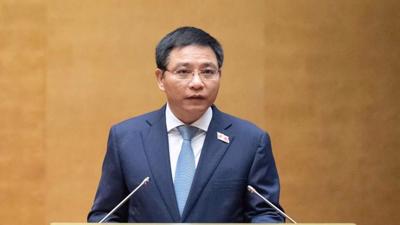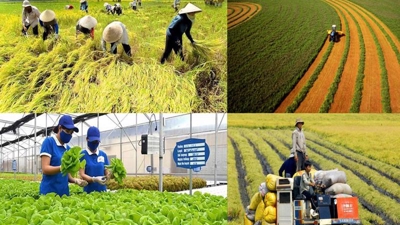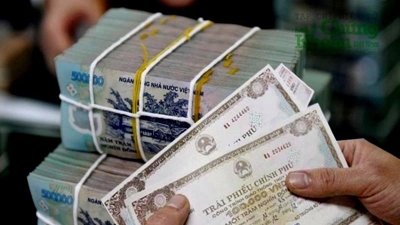Vietnam Steps Up Efforts To Combat Inflation Amid Global Turmoil
As economic storms rage worldwide, Vietnam's Deputy PM Le Minh Khai marshals forces to monitor price swings and deploy flexible strategies to rein in inflation within the 4-4.5% target for 2024.
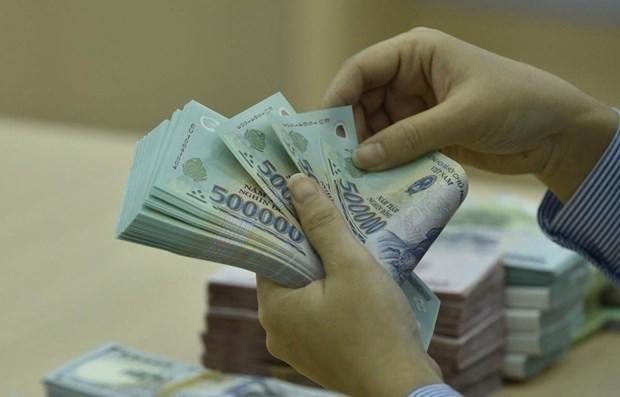
Vietnam is bracing for a protracted battle against rising inflationary pressures as global economic headwinds intensify. Deputy Prime Minister Le Minh Khai has just sounded the alarm in a recent high-level meeting, urging ministries, agencies, and local authorities to closely track fluctuations in domestic and international commodity prices.
This proactive approach aims to devise appropriate, flexible, and timely response scenarios to keep inflation within the National Assembly's targeted range of 4-4.5% for 2024.
The confluence of military conflicts, great-power rivalry, and disrupted supply chains has amplified risks to energy and food security, fueling price volatility and posing formidable challenges to Vietnam's price management efforts.
"Ministries and branches must focus on monitoring economic developments at home and abroad, make detailed and specific forecasts of factors affecting the general price level, and proactively build detailed scenarios for each industry and field," DPM Khai emphasized.
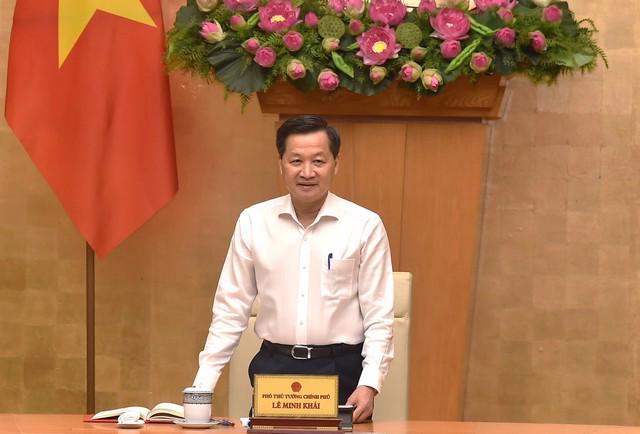
Bracing for Prolonged Turbulence
The first quarter of 2024 witnessed rising inflationary pressures, with the average Consumer Price Index (CPI) surging 3.77% compared to the same period in 2023, driven by post-Lunar New Year demand surges.
Looking ahead, the deputy prime minister cautioned that price management would face immense pressure in the coming months as escalating conflicts, unabated inflation, and lingering pandemic impacts exacerbate volatility in energy, raw materials, and maritime transport costs.
A Multifaceted Counteroffensive
To address these challenges proactively, Le Minh Khai outlined a comprehensive strategy involving coordinated efforts across government agencies.
Careful calculation of the optimal timing for price adjustments of essential goods and services is crucial, ensuring alignment with the new wage policy effective July 1st.
Simultaneously, ensuring adequate supplies of essential goods, especially those with high weights in the Consumer Price Index (CPI) basket, is imperative to meet consumer demand.
The strategy also emphasizes continuing the roadmap for adjusting public service prices based on market principles. Proactively preparing price adjustment options will enable prompt responses while maintaining control over inflation.
Moreover, enhancing policy research on taxes, fees, credit, interest rates, and exchange rates is vital to support businesses, citizens, and contribute to inflation control efforts.
Furthermore, strengthening the legal framework is a key component of the strategy. Implementing the Price Law from July 1st will establish a robust corridor for effective price administration, providing a solid foundation for the government's multifaceted approach to combating inflationary pressures.
The deputy prime minister instructed the State Bank to rigorously implement directives on gold product management, ensuring balanced supply and demand at reasonable prices. Research into long-term solutions aims to align gold management with state oversight and citizens' legitimate needs.

Transparent Communication and Stakeholder Engagement
Emphasizing transparency, Mr. Le Minh Khai tasked ministries and agencies with timely, public dissemination of price information, particularly for essential goods and services impacting production and livelihoods.
"Everything must be for the common good, the people's benefit," he stressed, "resolutely fighting against price inflation, against group interests, limiting the increase in inflation expectations, and stabilizing consumer and business psychology."
Vietnam's inflationary battle echoes challenges faced globally as the pandemic's aftershocks, supply disruptions, and geopolitical tensions roil markets.
The International Monetary Fund (IMF) has warned of a "tough year" ahead, with global inflation projected at 5.9% in 2024, moderating to 4.5% by 2025. Developing economies bear the brunt of rising food and energy costs, exacerbating poverty and economic instability.
A Resilient Economy Amid Headwinds
Despite formidable challenges, Vietnam's economy has shown resilience, with the retail market projected to continue recovering. In Q1 2024, total retail sales of goods and consumer services reached over VND 1,537 trillion (USD 60.8 billion), an 8.2% increase year-on-year, with travel revenue surging 46.3%.
However, uncertainties loom. The Ministry of Finance has outlined three scenarios, forecasting average CPI increases of 3.64%, 4.05%, or up to 4.5% compared to 2023, depending on global and domestic economic conditions' severity.
A Balancing Act for Sustainable Growth
As Vietnam navigates uncharted waters, the government's ability to strike a balance between controlling inflation, supporting businesses and citizens, and promoting economic growth will be paramount.
The proactive, coordinated approach advocated by Deputy Prime Minister Le Minh Khai underscores the urgency of timely and effective measures across ministries, agencies, and local authorities.
By closely monitoring price fluctuations, developing sector-specific response scenarios, and leveraging fiscal, monetary, and regulatory tools, Vietnam aims to weather the global economic storm while safeguarding its citizens' well-being and the sustainability of its economic progress.
As the world grapples with geopolitical tensions and supply chain disruptions' ripple effects, Vietnam's resilience and adaptability in confronting these challenges will be tested.
Nonetheless, the government's resolute commitment to transparent communication, stakeholder engagement, and a multifaceted approach to price management offers a glimmer of hope amid turbulent times.


